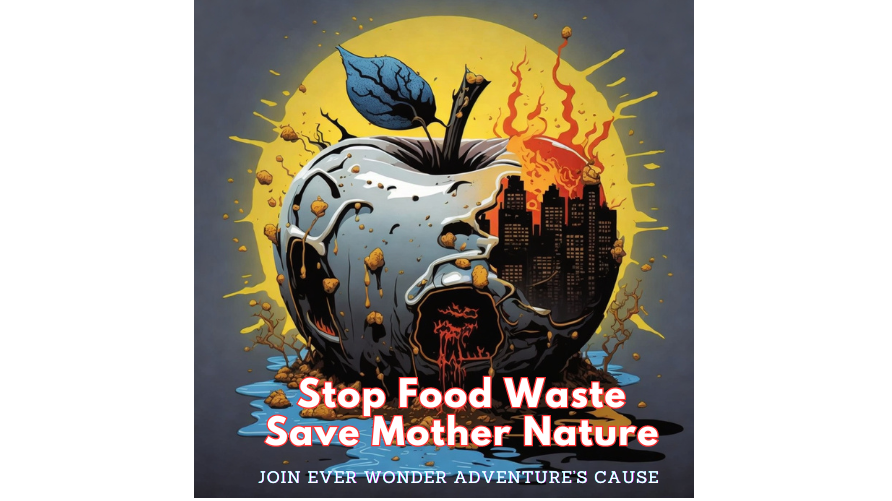How Reducing Food Waste Can Help Save the Planet and Feed the Hungry
Food waste is a critical global issue, contributing significantly to greenhouse gas emissions and food insecurity. Addressing food waste requires coordinated efforts from individuals, businesses, and governments. By making conscious choices, we can reduce waste and mitigate its environmental and humanitarian impacts.

Introduction: The Hidden Impact of Food Waste
Food waste is more than just an overlooked issue—it’s a global crisis with severe environmental and humanitarian consequences. Every year, roughly 17% of all food available to consumers, retailers, and food services is wasted, according to the United Nations Environment Programme (UNEP) Food Waste Index Report 2021. This waste is not just an economic loss but a significant driver of environmental degradation, contributing to 8-10% of global greenhouse gas emissions. Shockingly, despite its profound impact, food waste is rarely included in national climate action plans under the Paris Agreement, where countries commit to combating climate change.
Understanding the Environmental Toll of Food Waste
The environmental impact of food waste is far-reaching and alarming. The global food system—spanning farming, processing, distribution, and consumption—is responsible for approximately 26% of all greenhouse gas emissions. Livestock and fisheries alone account for 31% of food-related emissions, largely due to methane produced by cattle. Meanwhile, crop production contributes 27% of these emissions, primarily through the release of nitrous oxide from fertilizers and methane from rice paddies. Land use changes, such as deforestation for agricultural expansion, further exacerbate climate change by releasing carbon stored in trees and soil.
Additionally, the inefficiencies in the food supply chain—including processing, transport, packaging, and retail—contribute 18% of food emissions. Much of this waste, from farm to table, ends up generating emissions that could be avoided. About one-quarter of all food production emissions—around 3.3 billion tonnes of CO2 equivalent—are attributed to food that never gets consumed. This is more than just waste; it represents a significant and preventable source of greenhouse gas emissions.
Food Waste as a Humanitarian Crisis
Beyond environmental concerns, food waste also poses a significant humanitarian challenge. In 2019, about 690 million people were hungry, and this number is expected to increase due to economic and social challenges, such as those presented by the COVID-19 pandemic. The Food and Agriculture Organization (FAO) of the United Nations also reports that 3 billion people cannot afford a healthy diet. The stark contrast between widespread hunger and the extensive food waste highlights the inefficiencies and inequalities within our global food systems.
Every year, 1.3 billion tonnes of food, worth $1 trillion, is wasted—food that could feed up to 3 billion people. Moreover, the production of this wasted food uses up vast amounts of resources, including water, leading to an annual economic loss of $172 billion. Astonishingly, food waste ranks as the third-largest source of global emissions, after China and the United States.
The Complexity of Addressing Food Waste
Reducing food waste is crucial for tackling climate change, but it's not without its challenges. Unlike the energy sector, where low-carbon technologies can be deployed more straightforwardly, agriculture and food production involve complex, biological processes. The need for fertilizers to meet the growing food demand, coupled with methane emissions from livestock, makes decarbonizing agriculture particularly challenging.
To effectively reduce food waste, a multifaceted approach is required. This includes changes in dietary habits, improvements in agricultural efficiency, and the development of scalable low-carbon food alternatives. Consumers, businesses, and governments all have critical roles to play in this effort.
Taking Action: How Everyone Can Help Reduce Food Waste
Consumers can start making a difference by reducing food waste at home. Simple actions—like planning meals, storing food correctly, and understanding food labels—can significantly cut down the amount of food that ends up in the trash. Collectively, small changes in daily habits can lead to substantial reductions in food waste.
Businesses, especially those in the food retail and service sectors, can also play a significant role by implementing better supply chain management practices, offering smaller portion sizes, and donating surplus food. Policy interventions are equally vital; governments must recognize the importance of food waste in their climate action plans and include strategies to reduce it in their Nationally Determined Contributions (NDCs).
Supporting Initiatives to Combat Food Waste
Organizations like are leading the charge in reducing food waste and promoting sustainability. Supporting their mission allows individuals to be part of a larger movement aiming for meaningful change in both environmental sustainability and global food security.
To learn more about how you can make a difference and support Ever Wonder Adventure's mission, visit their Food Waste Initiative. Together, we can combat food waste and help protect our planet for future generations.
Conclusion: The Urgent Need for Collective Action
The fight against food waste is one of the most critical battles in addressing both climate change and global hunger. By recognizing food waste as a significant environmental and humanitarian issue, we can take steps to reduce its impact. It’s time for governments, businesses, and individuals to act—small changes can lead to big results. Let’s work together to create a more sustainable and equitable global food system.
For more information on how you can contribute to reducing food waste, visit . Join the movement today and help make a difference.

